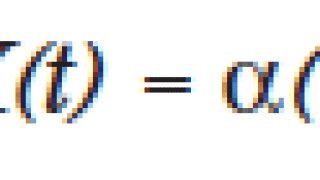Learning Curve
-
Momentum towards the implementation of a legal entity identifier (LEI) has continued to build in 2013.
-
The role of what has up to now been called the OTC marketplace for transacting financial market instruments across all the global economies is vital for the G20 growth agenda. Most, if not all, traded financial products have their genesis in OTC markets and then migrate to exchanges if they can become standardized and liquid enough. In particular, wholesale markets...
-
Benchmark manipulation concerning Libor, Euribor and Tibor has increased the awareness of the role that benchmarks play in the wholesale financial markets and the wider economy.
-
Do you manage a private equity fund, real estate fund, investment fund, hedge fund or any other alternative investment fund, a UCITS or work for a company that does? Are the fund or your company or both established in the European Economic Area or does the fund trade with derivatives with counterparties based in the EEA? If so, read on for a summary of important changes that are being made to the regulation of derivatives in the EEA.
-
Singapore began its over-the-counter derivatives reform program in July 2011 when the Monetary Authority of Singapore, the central bank and financial services regulator, announced it would meet the objectives set by the G-20 in Pittsburgh in Sept. 2009 as well as the recommendations of the Financial Stability Board set out in its report to the G-20 Finance Ministers and Central Bank Governors in Oct. 2010. Although not a member of the G-20, Singapore is a member of the FSB.
-
As the basket into which trillions of dollars worth of eggs, in the form of OTC derivatives, must eventually be crammed, central clearing counterparties have the potential to become the world's biggest too-big-too-fail institutions.
-
The derivative markets have changed dramatically since the global financial crisis, having a significant impact on how derivatives are fundamentally priced. Regulatory reform and structural changes to the markets have resulted in increased collateralization of trades and a move to central clearing of vanilla trades.
-
In Wingecarribee Shire Council v Lehman Brothers Australia case, the unreported decision of Justice Steven David Rares contains a reasoned and detailed judgment canvassing many current legal topics ranging from representative proceeding process to the duty of financial advisers in negligence, under statute and the imposition of fiduciary duties. This Learning Curve confines itself to a summary of the facts, the key findings and implications for financial advisers and their insurers arising from the judgment.
-
We revisit the problem of valuing Bermudan swaptions in a 1-factor LGM model when the yield curves used for projecting and discounting the flows of the reference swap are different to the yield curves used to value standard European swaptions.
-
The European Securities & Markets Authority published ‘EMIR: Frequently Asked Questions’ to “provide clarity” in relation to the European Market Infrastructure Regulation. This FAQ article covers the position prior to scrutiny of the EMIR Technical Standards by the European Parliament and Council of the E.U.”
-
The global financial crisis brought counterparty credit risk and credit value adjustment (CVA) very much into the spotlight. The Basel III proposals first published in December 2009 introduced changes to the Basel II rules including a new capital charge against the volatility of CVA.
-
The Basel Committee on Banking Supervision published the finalised Liquidity Coverage Ratio last Monday. The finalised LCR is less onerous than the original formulation published in December 2010 and should therefore be welcomed by banks. This Learning Curve outlines the main amendments to the LCR and considers their effect.









